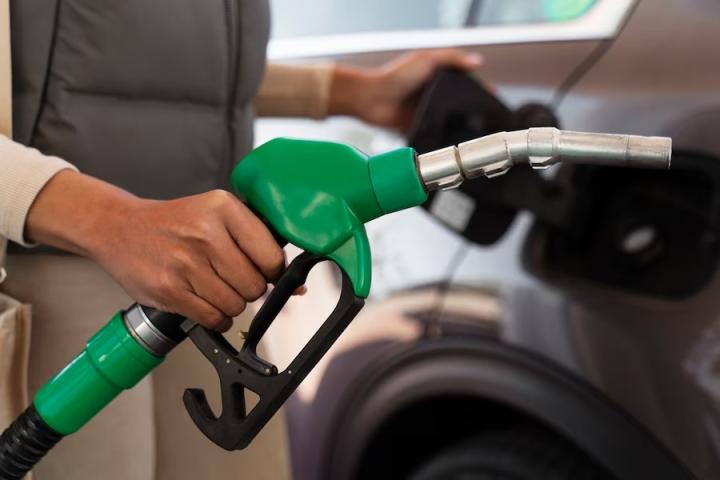The Depot and Petroleum Products Marketers Association of Nigeria (DAPPMAN) has issued a sharp warning over recent petrol price cuts by Dangote Refinery, describing them as potentially harmful to the downstream petroleum market. According to DAPPMAN, the timing and implementation of these reductions could impose financial strain on other market actors and disrupt the broader ecosystem.
In a public statement, Olufemi Adewole, Executive Secretary of DAPPMAN, said that the refinery’s recent move to reduce the gangway (gantry) price of petrol to ₦820 per litre—and fuel retailing at ₦841 in Lagos and the South-West, and ₦851 in Abuja, Edo and other regions—ignore market realities and existing inventory commitments held by independent marketers. He criticized what he called “unpatriotic timing” of the cuts, saying they occur when importers have cargoes in transit, creating confusion and financial disadvantage for those who had purchased stock at higher rates.

According to DAPPMAN, this pattern of pricing creates what they term “price shocks,” which undermine competition and squeeze local businesses who may not have the same scale or capacity as Dangote to absorb sudden cost shifts. The association raised concerns that while Dangote offers lower rates to certain buyers, it maintains higher charges for local off-takers—marketers who distribute fuel to depots and retail outlets—making it hard for them to compete.
Adewole also urged for fairness in delivery terms. He noted that while Dangote claims to provide free delivery in some cases, marketers are still required to lift a portion of their allocation directly from the refinery’s gantry using Dangote-owned logistics, often at commercial rates. This, he said, imposes logistical burdens and offsets savings marketers might hope to gain from lower gontribution costs.
In response to Dangote’s assertion that the refinery is meeting domestic demand and even exporting surplus, DAPPMAN emphasized that the refinery’s share of national fuel supply—while significant—is estimated at around 30-35%. The rest of the demand is still met by import-dependent marketers who face foreign exchange, shipping, storage and distribution costs, all of which are sensitive to price volatility.
DAPPMAN also challenged narratives that suggest downstream stability depends solely on the Dangote facility. “It is misleading to suggest that the downstream sector’s health rests solely on one refinery,” Adewole said. “For decades, marketers have maintained supply across Nigeria despite subsidy removal, forex instability and other economic headwinds. Our contributions are real and mustn’t be overlooked.”
The concern from DAPPMAN comes amid broader downstream reforms and public expectations about fuel affordability. With fuel subsidy removal and price deregulation, many Nigerians welcomed Dangote’s cuts as relief from high fuel prices. However, marketers say that sharp or sudden price reductions—if not handled in coordination with the market—can destabilize cash flows for businesses which had bought stock at earlier, higher costs or made long-term procurement contracts.
Some analysts believe DAPPMAN’s warning highlights deeper issues in Nigeria’s downstream petroleum sector: the imbalance in scale between the refinery and independent marketers; the challenge of logistics costs; and the difficulty smaller players face in matching supply chain efficiencies of a large refinery.
Dangote Refinery, on its part, has maintained that its operations are transparent and that it is operating in line with deregulation policies. The refinery announced plans to start direct fuel distribution to several states, lowering the gantry price, and promising free deliveries to registered depots in certain areas in order to ease fuel supply.
Critics say, however, that more clarity is needed on how benefits from lower refinery prices are being passed down the chain—from refinery to depot to retail station. There are calls for oversight to ensure that logistics, distribution, and profit margins are not absorbing the bulk of price savings, leaving consumers with medicines of only marginal relief.
Meanwhile, DAPPMAN has called on government regulators like the Nigerian Midstream and Downstream Petroleum Regulatory Authority (NMDPRA) to ensure equitable enforcement of rules, transparent pricing, and monitoring of product quality across all players. The association is urging for policies that support smaller marketers in building capacity, as well as regulatory mechanisms that prevent domination by single large refiners.
In the public domain, opinions are mixed. Nigerians who commute frequently or operate transport businesses have lauded Dangote for reducing pump prices, at least temporarily offering relief. But among marketers and depot owners, there is unease that the recent policy shifts may undermine competition, increase the risk of monopolistic behavior, and reduce margins for existing supply chain partners.
Letting market forces adjust is one argument; ensuring that the adjustments are fair and transparent is another. DAPPMAN’s stand reflects that tension—between price relief and ensuring a level playing field.
For now, the downstream sector is poised at a critical juncture. Dangote’s price cuts may continue to drive public approval, but without coordinated regulation and fair treatment of all market participants, the relief might prove short lived. The interplay between cheaper fuel, market stability, and regulatory oversight will likely define how sustainable this current phase of price reduction turns out to be.
Support InfoStride News' Credible Journalism: Only credible journalism can guarantee a fair, accountable and transparent society, including democracy and government. It involves a lot of efforts and money. We need your support. Click here to Donate
